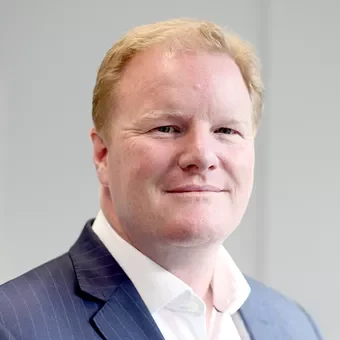Looking to hire your next leader?
Get in touch with one of our consultants now to discuss your leadership talent requirements.


As an executive search consultant at Page Executive , I’ve seen brilliant leaders fall flat in interviews — not because they lack ability, but because they don’t “perform” the part.
We often expect great leaders to be great interviewees. But that’s not always the case.
Some of the most transformative leaders don’t shine in traditional interviews. They may come across as understated, overly humble, or even hesitant. Yet, once in the role, they inspire teams, navigate complexity, and drive lasting impact.
So why the disconnect?
The answer lies in understanding the nuance of leadership — and how it doesn’t always align with the performance-based nature of interviews.
![]()
Interviews often reward charisma and storytelling. But many great leaders are more focused on doing the work than talking about it.
As Simon Sinek puts it:
People don’t buy what you do; they buy why you do it.
Great leaders are driven by purpose, not performance. That purpose doesn’t always translate into polished interview answers — but it shows up in how they lead.
True leaders often speak in terms of “we” rather than “I.” They deflect credit and elevate others. In an interview, this can make it harder to pinpoint their individual contributions. This people-first mindset is powerful in practice — but it can be misread as vagueness or lack of ownership in interviews.
In high-pressure interviews, silence can feel awkward. But thoughtful leaders often pause to reflect before answering. This can be misinterpreted as hesitation. That authenticity — even if it lacks polish — is often a sign of a grounded, self-aware leader.
Even the most capable leaders can fall into these traps during interviews:
Leaders who are used to giving credit to their teams may struggle to articulate their own impact. This can make it hard for interviewers to assess their true value.
Some leaders default to high-level language that sounds impressive but lacks specificity. Interviewers need clear, concrete examples to understand how a leader operates.
Leaders may fear that admitting mistakes or failures will reflect poorly on them. But vulnerability — when framed with learning and growth — is often a sign of emotional intelligence.
Especially for senior candidates, there’s a tendency to assume their resume or title is enough. But interviews are about connection, clarity, and communication — not just credentials.
Some leaders are so focused on delivering their message that they miss cues from the interviewer. Great leadership includes adaptability — and that starts in the interview.
Instead of focusing on how well someone answers a question, look for consistent patterns in their career: Have they built strong teams? Navigated complexity? Left organisations better than they found them?
Peter Drucker’s insight is key here:
Management is doing things right; leadership is doing the right things.
Great leaders speak in terms of values, purpose, and long-term thinking. They may not dazzle with metrics, but they reveal a clear sense of direction.
Consider supplementing interviews with:
![]()
The best leaders aren’t always the best interviewees. And the best interviews aren’t always the most polished.
As hiring managers, recruiters, and talent leaders, our job is to see beyond the surface — to recognise the quiet confidence, the thoughtful pause, the team-first mindset. These are often the marks of someone who will lead not just with skill, but with integrity and impact.
This is also where inclusive hiring plays a vital role. By broadening our definition of what leadership “looks like” in an interview, we open the door to more diverse talent — individuals who may not fit the traditional mould but bring fresh perspectives, lived experience, and long-term value.
Don't miss out on great leaders just because they don’t perform the part. Build processes that help us see their potential — clearly and fairly.
Get in touch with one of our consultants now to discuss your leadership talent requirements.

Choose your country from the list below to complete the brief form:


